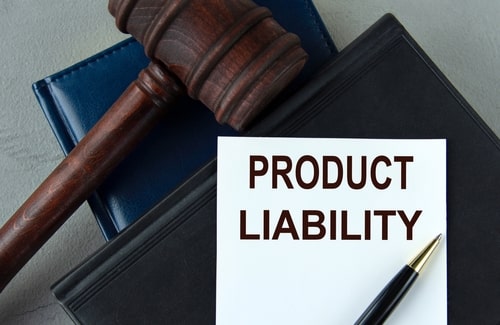Personal Injury Attorney Your Guide to Seeking Compensation
When life throws unexpected challenges your way and you find yourself injured due to someone else’s negligence, hiring a competent personal injury attorney becomes crucial. These legal professionals specialize in providing guidance, support, and advocacy to help victims seek justice and fair compensation. In this article, we’ll delve deep into the world of personal injury attorneys, exploring their roles, expertise, and the steps involved in finding the right lawyer to represent your case.
What is a Personal Injury Attorney?
A personal injury attorney is a legal expert who represents individuals who have suffered physical or emotional harm as a result of someone else’s negligent actions. They possess a thorough understanding of personal injury laws and are equipped with the knowledge and experience to build a strong case on behalf of their clients. Whether it’s a car accident, slip and fall, medical malpractice, or product liability, a personal injury attorney can help victims navigate the complex legal process and fight for the compensation they deserve.
Why Do You Need a Personal Injury Attorney?
When dealing with a personal injury case, many individuals wonder if hiring an attorney is necessary. Here’s why having a personal injury attorney by your side can make a significant difference:
- Legal Expertise: Personal injury cases involve intricate laws and regulations that can be challenging to navigate without legal expertise. A skilled attorney will guide you through the process, ensuring all legal procedures are followed correctly.
- Maximize Compensation: Experienced attorneys know how to assess the true value of your claim and work tirelessly to maximize the compensation you’re entitled to, considering medical expenses, lost wages, emotional distress, and more.
- Negotiation Skills: A personal injury attorney is well-versed in negotiation tactics and can handle discussions with insurance companies and the opposing party to secure a favorable settlement.
- Litigation Representation: If the case goes to court, an attorney will provide professional representation, presenting evidence, cross-examining witnesses, and advocating for your rights before a judge and jury.
Finding the Right Personal Injury Attorney
1. Research and Referrals
Start your search by conducting thorough research. Look for reputable personal injury attorneys in your area and read online reviews to gain insights into their reputation and track record. Additionally, seek recommendations from friends, family, or colleagues who have had positive experiences with personal injury lawyers.
2. Experience and Specialization
When selecting an attorney, prioritize experience in handling cases similar to yours. Specialized knowledge in a particular area of personal injury law can significantly improve your chances of a successful outcome.
3. Initial Consultations
Schedule consultations with potential attorneys to discuss your case. Use this opportunity to gauge their communication skills, understanding of your situation, and their approach to handling your claim.
4. Fee Structure
Clarify the attorney’s fee structure during the initial consultation. Most personal injury attorneys work on a contingency fee basis, meaning they only get paid if you win your case. This arrangement can be beneficial for clients who may not have the funds to pay upfront legal fees.
How Personal Injury Attorneys Build Your Case
Personal injury attorneys employ a strategic approach to build a robust case on your behalf. Here’s how they do it:
1. Investigation and Evidence Gathering
An attorney will conduct a thorough investigation to gather evidence related to your injury, such as medical records, accident reports, witness statements, and expert opinions. This evidence strengthens your claim and supports your demand for fair compensation.
2. Documentation and Demand Letter
Your attorney will prepare and send a demand letter to the at-fault party’s insurance company, outlining the details of your case, the extent of your injuries, and the compensation you seek. This letter serves as a starting point for negotiations.
3. Negotiation and Settlement
An attorney will negotiate with the insurance company to reach a fair settlement. They will advocate for your best interests and ensure you receive the compensation you deserve. If a fair settlement cannot be reached, your attorney may advise taking the case to court.
FAQs
Q: How long do I have to file a personal injury claim?
A: The statute of limitations for personal injury claims varies by state and the type of injury. In most cases, it’s advisable to file your claim as soon as possible to ensure evidence is preserved and witnesses are available.
Q: Can I handle a personal injury case without an attorney?
A: Technically, yes. However, navigating the legal complexities and negotiating with insurance companies is challenging without legal expertise. Hiring a personal injury attorney significantly increases your chances of a successful outcome.
Q: What if I can’t afford a personal injury attorney?
A: Many personal injury attorneys work on a contingency fee basis, meaning they only get paid if you win your case. This arrangement allows access to legal representation without upfront costs.
Q: Will my case go to trial?
A: Not all personal injury cases go to trial. Many are settled through negotiations with the insurance company. However, if a fair settlement cannot be reached, your attorney may recommend taking the case to court.
Q: How much compensation can I expect for my injuries?
A: The amount of compensation depends on various factors, including the severity of your injuries, medical expenses, lost wages, and the impact on your life. An experienced attorney will work to secure the maximum compensation possible.
Q: What if I was partially at fault for the accident?
A: Comparative negligence laws vary by state. In some states, you can still recover damages even if you were partially at fault. An attorney can assess your situation and advise you on the best course of action.
Conclusion
A personal injury attorney can be your greatest ally when seeking justice and compensation after an injury caused by someone else’s negligence. They possess the expertise, experience, and dedication necessary to guide you through the legal process and fight for your rights. Remember to research, seek referrals, and schedule consultations before choosing the right attorney for your case. With their help, you can confidently navigate the complexities of the legal system and work towards a fair resolution.



